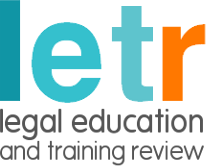Conclusions
4.141 This chapter has sought to demonstrate the ways in which baseline quality should be identified and subsequently attained through a system of competencies and standards, backed-up by a rigorous, standardised assessment regime. In particular, the chapter has highlighted a number of persistent and in some cases fundamental challenges for the LETR:
- reliance on relatively shallow, vague or narrow conceptions of competence;
- a failure generally to adopt robust methods for deriving outcomes;
- the widespread absence of standardised assessment processes;
- reliance on assessment practices that possess conformity rather than practice validity.
4.142 A future-orientated LSET system will be defined more by competency-based standards. These will be reflected in ‘day one outcomes’ for particular qualifications or pathways which are derived from a needs-led analysis of the practitioner’s role.
4.143 Outcomes will reflect the knowledge, skills and understanding required of a practitioner. Aside from the need for domain knowledge, the outcomes must place sufficient emphasis on ethics and professionalism, core communication skills (oral and written communication and, in appropriate contexts, advocacy), business and social awareness, equality and diversity issues, and legal research. This approach highlights the need for a reasonable degree of transparency in knowledge outcomes and therefore for some increase in the specification of the Foundations of Legal Knowledge.
4.144 This chapter also calls on the regulators to work with their communities to develop shared standards. Longer-term development on setting sector-wide outcomes and standards should also be considered as part of a move to a more harmonised LSET system.
4.145 Assessment is at the heart of LSET since it provides the key means of demonstrating that outcomes have been met. LSET requires more robust and more creative approaches to assessment. The report therefore makes recommendations to ensure that legal values are assessed pervasively, and legal writing and critical thinking assessed discretely at the academic stage (or its equivalent). It proposes ways in which client communication skills could be assessed more realistically; it also suggests that the greater integration of classroom and workplace learning would increase the reliability and practice validity of the assessment of professional skills.

